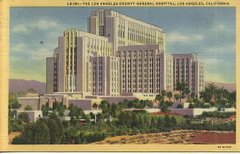Effects of short-term infliximab therapy on autoantibodies in systemic lupus erythematosus
By Martin Aringer, Günter Steiner, Winfried B. Graninger, Elisabeth Höfler, Carl W. Steiner, Josef S. Smolen
Abstract
Objective
To analyze changes in autoantibodies occurring in patients with systemic lupus erythematosus (SLE) treated with 4 infusions of the chimeric anti-tumor necrosis factor (TNF) antibody infliximab.
Methods
In an open-label safety study, 7 patients with SLE were treated with infliximab at weeks 0, 2, 6, and 10 in combination with azathioprine or methotrexate. Antibodies to double-stranded DNA (dsDNA) were determined by radioimmunoassay and the Crithidia luciliae indirect immunofluorescence assay; anticardiolipin antibodies (aCL) and antibodies to histone and chromatin were measured by enzyme-linked immunosorbent assay. Antihistone antibodies were also analyzed by immunoblotting. Peripheral blood mononuclear cells from healthy individuals and SLE patients were incubated for 2 weeks with or without TNF. TNF was removed by washing and by the addition of infliximab. Apoptotic cells were stained with annexin V and analyzed by flow cytometry.
Results
Autoantibodies to dsDNA increased in 5 of 7 patients. Histone, chromatin, and IgM aCL levels were increased in 4 of 7, 6 of 7, and 4 of 7 patients, respectively, peaking 4-10 weeks after the last infliximab infusion, but falling to baseline levels or lower thereafter. In the in vitro experiments, TNF withdrawal after long-term incubation with recombinant human TNF led to increased percentages of apoptotic cells.
Conclusion
While TNF blockade was clinically effective, the majority of SLE patients treated with infliximab showed an increase in autoantibodies to nuclear antigens and phospholipids. These increases were transient and were not associated with disease flares. Increased availability of apoptotic antigens after TNF blockade may play a role in the autoantibody formation induced by TNF blockade.
Los Angeles County Hospital

Monthly Paper Selection
Journal RSS (FEEDS):
By following the link below, you will be redirected to my Bloglines website. I set up a page with FEEDS from the main Rheumatology Journals, Internal Medicine Journals and Immunology Basic Science Journals:
http://www.bloglines.com/public/brunostoliver
In addition, I made available some FEEDS from Rheumatology Journals below, but be aware that this is not a complete list of each Journal issue. To get the complete list, click in the link above and you will be redirected to bloglines.com
Medscape Rheumatology Headlines
Physician's First Watch: Current Issue
Arthritis & Rheumatism
Annals of the Rheumatic Diseases current issue
Rheumatology - current issue
Current Opinion in Rheumatology - Current Table Of Contents
CER - Recent Issue
Arthritis Research & Therapy - Latest articles
JCR: Journal of Clinical Rheumatology - Current Table Of Contents
Nature Clinical Practice Rheumatology
Lupus current issue
Journal Links (Blogroll from Bloglines)
Rheumatology Journals Schedule
- Arthritis and Rheumatism: Monthly
- Annals of Rheumatic Disease (The EULAR Journal): Monthly
- Journal of Rheumatology: bi-weekly (only e-mail TOC/no RSS)
- Rheumatology (Oxford): Monthly
- Current Opinion in Rheumatology (COR): 6 issues/year (bi-monthly)
- Clinical and Experimental Rheumatology (CER): 6 issues/year (bi-monthly)
- Arthritis Research and Therapy: 6 issues/year (bi-monthly)
- Journal of Clinical Rheumatology: 6 issues/year (bi-monthly)
- Scandinavian Journal of Rheumatology: 6 issues/year (bi-monthly) !No issues since July 2006
- Rheumatic Disease Clinics of North America: (4-5 reviews/year): Receive e-mail TOC. No RSS.
- Seminars in Arthritis and Rheumatism: 6 issues/year (bi-monthly)+ 2 Supplements: Receive e-mail TOC. No RSS.
- Nature Clinical Practice Rheumatology: Monthly
- Lupus Journal: Monthly
Internal Medicine Journals Schedule
- Archives of Internal Medicine: Bi-weelky (Monday)
- Annals of Internal Medicine: No RSS available: Bi-weekly (Tuesday) (only e-mail TOC)
- JAMA: Weekly (Wednesday)
- NEJM: Weekly (Thursday)
- Lancet: Weekly (Friday)
- British Medical Journal: Weekly (Saturday)
Saturday, January 27, 2007
Subscribe to:
Post Comments (Atom)





1 comment:
Interesting article by smolen et al from vienna.
Rhupus patients may benefit the most and antibodies can be suppressed by adding methotrexate.
Good job on the website bruno.
Post a Comment